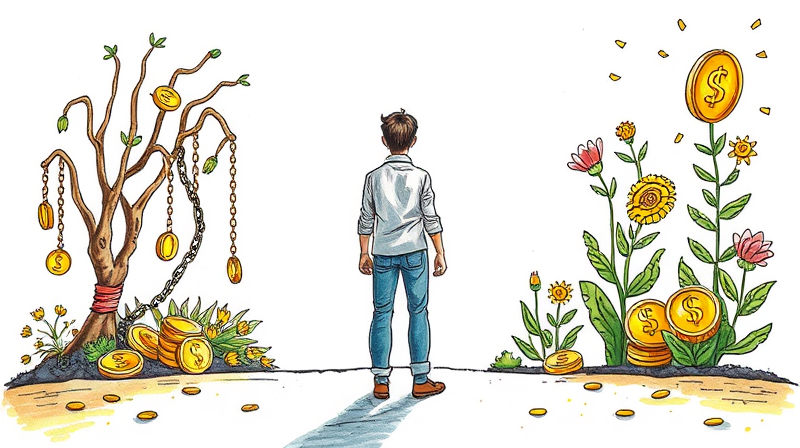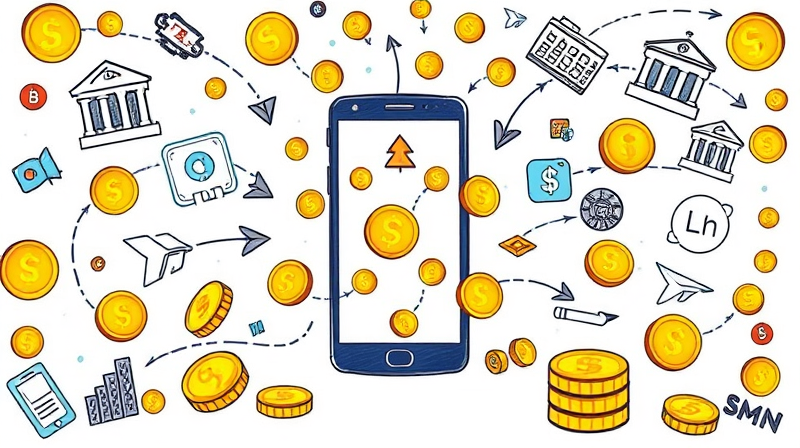
Unlocking financial freedom begins in your mind. By reshaping how you think about wealth, you can transform stress into purpose, scarcity into opportunity, and fear into agency.
Your money mindset is more than budgeting techniques or investment knowledge.
It reflects a person’s set of beliefs, attitudes, and emotions about money, often formed in childhood and reinforced by culture. These mental patterns guide decisions on saving, spending, debt, and wealth building, frequently operating beneath conscious awareness. Recognizing this foundation is the first step toward meaningful change.
Experts identify several distinct scripts that shape financial behavior:
Most adults inherit their money mindset from childhood experiences. Observing parental habits—whether open or secretive—lays down neural pathways that persist into adulthood.
Social and cultural messages also play a powerful role. Media often glorifies wealth and status, while peer pressure can trigger comparisons that reinforce scarcity or status-driven views.
Emotional triggers like stress, fear, and guilt can spark impulsive decisions. Many turn to retail therapy to momentarily relieve anxiety, creating patterns that may undermine long-term goals.
Cognitive biases also influence decisions. Optimistic individuals invest boldly but risk overexposure, while pessimists might avoid worthwhile opportunities. Building empower your financial confidence relies on balancing hope with pragmatism.
Negative money beliefs can lead to chronic anxiety, avoidance of financial planning, and even depression. When you believe there will never be enough, you may save excessively and miss out on growth or joy in the present.
Self-sabotage emerges when guilt over spending or fear of success holds you back from pursuing advancement opportunities that could improve your life.
Several models help decode the beliefs that guide financial choices. Familiarizing yourself with these frameworks can clarify the path forward.
The journey begins with self-awareness. Reflect on statements like “I’ll never have enough” to identify limiting beliefs. Journaling or guided quizzes can reveal patterns hidden deep in the subconscious.
Next, actively challenge those beliefs. If fear says you must hoard, remind yourself of past successes or market opportunities that rewarded bold moves. Coupling this with practice daily gratitude for financial wins builds positive neural pathways that support growth.
Visualization and affirmations reinforce new scripts. Tell yourself, “I am worthy of prosperity,” and picture concrete outcomes, like an emergency fund or debt-free life.
Consider Maria, who grew up in a household where money was never discussed openly. She struggled with guilt every time she spent on anything deemed “non-essential.” By working with a coach, Maria identified her scarcity conditioning and replaced it with an abundance narrative. Over a year, she paid off debt while still enjoying small luxuries, experiencing freedom she once deemed impossible.
Or think of David, who equated his self-worth with his bank balance. He constantly chased promotions at the expense of relationships and health. Mindfulness practices and gratitude exercises shifted his focus from accumulation to purpose, leading him to a balanced career path and deeper life satisfaction.
Q: Can anyone change their money mindset?
A: Absolutely. With intentional work—reflection, education, and support—anyone can rewire their beliefs over time.
Q: How long does it take to see results?
A: While some notice shifts in weeks, lasting change often unfolds over months. Consistency is key.
Q: Do I need professional help?
A: Self-guided work helps many, but therapy or coaching can accelerate breakthroughs, especially when entrenched patterns exist.
Use this quick checklist to launch your journey:
Mastering your money mindset is a process of self-discovery and deliberate practice. By shifting from fear to opportunity, you unlock not just financial growth but also deeper satisfaction and purpose. Remember, money is not an end in itself but a means for achieving your life goals.
Embark on this journey with patience and compassion, and watch how a cycle of positive money beliefs transforms your reality. Your future financial well-being starts now.
Embrace continuous learning and revisit your mindset practices regularly. Monitor your progress quarterly to maintain momentum and ensure that your evolving beliefs align with your long-term aspirations.
References













